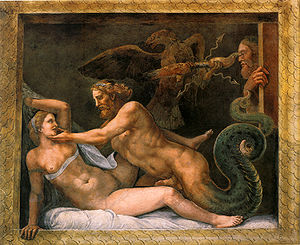My last post looked at Bultmann’s insights into the synoptic portrayal of the baptism of Jesus. This post looks at some disturbing and depressing reasons why at least two modern scholars appear to have rejected Bultmann’s findings. Disturbing and depressing because their reasons have nothing to do with the detail of Bultmann’s arguments. Bultmann is rejected because he came to the “wrong conclusion” and so ideological or sociological reasons are brought in to explain his “wrong conclusion”. Bultmann’s “wrong conclusion” was that too much of the Gospel narrative about Jesus was explained as Hellenistic (Greek) in origin and failed to make Jesus “Jewish enough”; in fact he concluded the Gospels did not allow us to learn much about the “real Jesus” at all.
I don’t know the field well enough to generalize but two scholars (among several) do stand out from my readings for having made particularly — I don’t know if the word “anti-intellectual” is too strong — anti-intellectual(?) rejections of Bultmann’s arguments. I can understand various objections to form criticism myself, but these scholars appear to have dumped the whole bath into the mud-pit.
James Crossley of the University of Sheffield faults Bultmann for failing to open up the application of social sciences to biblical studies and thereby explore the social setting of Christian origins — specifically a Jewish social setting for Jesus.
Bultmann emphasized an existential hermeneutic with theological truth supposedly found in the seemingly transcendent Gospel of John. (p. 4 of Why Christianity Happened)
I address a possible sinister significance of that use of “existential” later.
Crossley avoids blaming Bultmann’s for any personal anti-semitism but he that does not stop him from associating his studies with anti-semitism: Continue reading “Anti-intellectualism(?) in Jesus studies”

